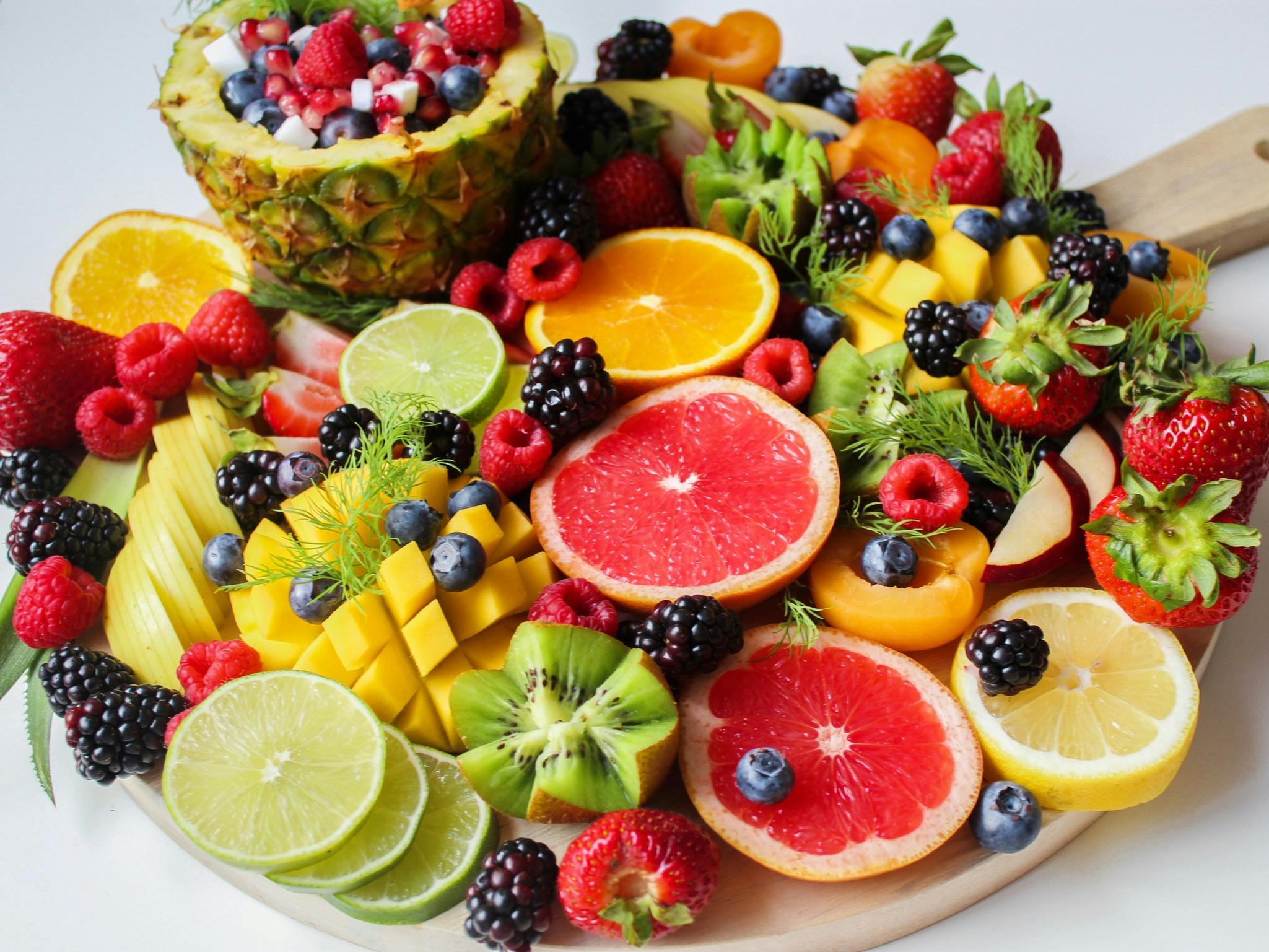Kiwis are a small, fuzzy fruit that many people enjoy eating. But the question remains – are kiwis citrus fruits? The answer is no, kiwis are not citrus fruits, but they still provide a healthy and delicious snack option. In this article, we’ll explore why kiwis are not considered citrus fruits and look at some of the nutritional benefits of this tasty fruit.No, kiwis are not citrus fruits. They belong to the genus Actinidia and are native to China and the surrounding areas.
What is a Citrus Fruit?
Citrus fruits are a type of fruit that belong to the Rutaceae family. They are typically characterized by their acidic or sour taste, which is due to the high concentration of citric acid in them. Common citrus fruits include oranges, grapefruits, lemons, limes, and tangerines. These fruits are widely cultivated and enjoyed for their sweet-tart flavor as well as their nutritional benefits.
Citrus fruits are rich in vitamin C, which helps to support the immune system and promote healthy skin. They also contain fiber, folate, calcium, potassium, phosphorus, magnesium and other vitamins and minerals that can help with digestion and overall health. Citrus fruits have antioxidant properties that can help protect against certain types of cancer and other diseases.
In addition to being eaten fresh, citrus fruits can be used in a variety of recipes for salads, desserts, marinades and sauces. Citrus juice is often used as an ingredient in dressings or marinades for meats and vegetables. The rinds of citrus fruits can also be dried or candied for use in baking or making tea infusions.
Citrus fruits are generally available year-round but they tend to peak in flavor during the winter months when temperatures are cooler. When selecting citrus fruits at the store or market look for ones that have a bright color with no bruises or soft spots. Store them at room temperature for up to one week or refrigerate them for up to two weeks for optimal freshness.
Types of Citrus Fruits
Citrus fruits are an incredibly popular type of fruit that have been around for centuries. They are known for their bright colors, sweet and tart flavors, and juicy pulp. The most common types of citrus fruits are oranges, lemons, limes, grapefruits, mandarins, tangerines, and pomelos. Each type is unique in its own way and can be used in a variety of recipes or eaten just as they are.
Oranges are the most popular type of citrus fruit in the world. They come in many varieties such as navel oranges, Valencia oranges, blood oranges, clementines, and more. Oranges are high in vitamin C and can be enjoyed as a snack or juice.
Lemons have a distinct tart flavor that makes them ideal for adding flavor to salads and various dishes. They’re also great when juiced and mixed with water or other ingredients to make a refreshing beverage. Lemons also contain citric acid which makes them great for cleaning surfaces around the home or office.
Limes also have a tart flavor but they tend to be milder than lemons. Limes are often used to make margaritas or other cocktails as well as salad dressings and marinades. They can also be used to add an extra zing to guacamole or salsa recipes.
Grapefruits are larger than most other types of citrus fruits with thick skin that is sometimes pinkish in color due to the presence of lycopene which is an antioxidant found in some varieties of grapesfruit. The flavor is sweet-tart with some people likening it to a combination between an orange and a lemon.
Mandarins are small citrus fruits that have loose skin that can be easily peeled away from the flesh inside. Mandarins come in many varieties such as clementines, tangerines, satsuma oranges, and tangelos which all have slightly different flavors but all have intense sweetness with no tartness at all.
Tangerines are similar in size to mandarins but their skin tends to be slightly thicker making them harder to peel away from the flesh inside compared to mandarins. Tangerines also tend to be sweeter than mandarins but still retain some tartness too making them popular for adding flavor to salads or desserts alike.
Pomelos are large citrus fruits that resemble grapefruits but they tend to be much sweeter without any bitterness at all like grapefruits do sometimes have because they lack the compound that gives grapefruits their bitter taste known as naringinin.. Pomelos can be used for juicing or simply enjoyed freshly cut on their own with no additional flavoring needed at all because they’re already naturally sweet thanks to their high sugar content!
Nutritional Value of Citrus Fruits
Citrus fruits are some of the most popular and nutritious fruits in the world. They come in a variety of shapes, sizes, and colors, but are all packed with essential vitamins, minerals, and antioxidants. Citrus fruits are known for their high vitamin C content, which helps support immunity and is an important nutrient for overall health. They are also rich in fiber, potassium, folate, and other vitamins and minerals that are beneficial for health.
In addition to their vitamin C content, citrus fruits contain other important nutrients like antioxidants that can help protect against cell damage. Antioxidants help the body fight free radical damage from environmental toxins and can help reduce inflammation. Citrus fruits also contain flavonoids which have been linked to a number of potential health benefits including reduced risk of heart disease and cancer.
Eating a variety of citrus fruits regularly can provide many essential vitamins and minerals that can help support overall health. Citrus fruits are low in calories and fat but high in fiber which makes them an excellent choice for weight management and digestive health. Eating citrus fruits regularly may also help reduce the risk of certain types of cancer due to their antioxidant content.
Citrus fruits are easy to incorporate into your diet as they can be eaten raw or juiced into a refreshing beverage. They can be added to salads or smoothies as well as used to flavor fish or poultry dishes. Adding more citrus fruits to your diet is an easy way to get more vitamins, minerals, antioxidants, and fiber into your daily meals without adding extra calories or fat.
Health Benefits of Citrus Fruits
Citrus fruits are among the most popular fruits in the world, and for good reason. Not only are they tasty and refreshing, but they also provide a number of health benefits. Citrus fruits are packed with vitamins and minerals that can help keep you healthy. Here are some of the health benefits that citrus fruits can provide.
One of the main benefits of eating citrus fruits is their high vitamin C content. Vitamin C is an important antioxidant that helps protect cells from damage caused by free radicals. It also helps boost the immune system, making it easier to fight off diseases and infections. Citrus fruits also contain other vitamins, such as vitamin A, folate, and potassium, which all play a role in maintaining good health.
Citrus fruits are also rich in fiber, which can help you feel full longer after eating them. Fiber also helps promote digestion and can help reduce cholesterol levels in the blood. Additionally, fiber-rich foods like citrus fruits can help prevent constipation and other digestive issues.
Eating citrus fruits may also help reduce your risk of developing certain types of cancer. Studies have shown that people who eat more citrus fruits have a lower risk for some types of cancer, such as colon cancer. This could be due to the antioxidants found in citrus fruits that help protect cells from damage.
Lastly, citrus fruits have been linked to improved heart health. Eating them regularly may help lower blood pressure and reduce your risk for stroke or heart attack. Citrus fruits are also high in pectin, which helps reduce bad cholesterol levels in the blood.
As you can see, there are many health benefits associated with eating citrus fruits on a regular basis. Not only do they taste great but they also provide essential vitamins and minerals that can keep you healthy. So next time you’re looking for a delicious snack or a way to add more nutrition to your diet, consider adding some citrus fruit!

How to Identify a Kiwi Fruit
Kiwi fruit is a popular and delicious fruit that has many varieties. It is important to learn how to identify a kiwi fruit so you can choose the best one for your needs. Here are some tips for identifying a kiwi fruit:
The first thing to look for when trying to identify a kiwi fruit is its size and shape. A kiwi fruit should be oval-shaped, about the size of an egg, and have a thin skin with a fuzzy texture. The skin should be green in color with brown or black spots.
Another way to identify a kiwi fruit is by feeling it. The flesh of the kiwi should be firm but not too hard, and have a lot of small edible seeds on the inside. It should also have an intense sweet-tart flavor. If the kiwi feels too soft or has an off-putting smell, it’s best not to buy it.
Finally, look at the stem and stalk of the kiwi – they should both be green in color and attached firmly to the fruit. If either of them are brown or missing, then it’s likely that the kiwi has gone bad and should not be eaten.
By following these tips, you can easily identify a good quality kiwi fruit that will taste great when you eat it!
Nutritional Benefits of Kiwi Fruit
Kiwi fruit is a nutrient-rich, delicious, and exotic superfood. It is packed with essential vitamins, minerals, antioxidants, and fiber. It has been linked to a variety of health benefits, including improved digestion, better heart health, and even increased weight loss. With its sweet taste and unique texture, it is no wonder why kiwi fruit has become so popular among health-conscious individuals.
Kiwi fruits are an excellent source of vitamin C. This vitamin plays an important role in maintaining immune system health and aiding in the absorption of iron from food sources. Vitamin C can also help reduce the risk of developing common colds and other illnesses. It can also help protect the skin from free radicals that cause premature aging.
Kiwi fruits are also a good source of dietary fiber. Dietary fiber helps promote regular bowel movements and helps reduce the risk of various digestive problems such as constipation and irritable bowel syndrome. Fiber can also help lower cholesterol levels and reduce the risk of heart disease.
In addition to vitamins and dietary fiber, kiwi fruit also contains many other beneficial nutrients such as potassium, magnesium, copper, phosphorus, folate, niacin, pantothenic acid, zinc, manganese and selenium. These nutrients help support healthy bones and teeth as well as improve energy levels in the body.
Kiwi fruits are also high in antioxidants which can help protect against free radical damage that leads to chronic diseases such as cancer. The antioxidants present in kiwi fruit have been linked to lower risks for certain cancers such as colon cancer. The polyphenols present in kiwis can also help reduce inflammation throughout the body.
Finally, kiwi fruit may be beneficial for those looking to lose weight or maintain a healthy weight. Studies have shown that eating kiwis can help increase satiety (feeling full) which can lead to fewer overall calories consumed throughout the day. Additionally, due to its low glycemic index rating (GI), it is less likely to cause spikes in blood sugar levels which can lead to weight gain over time.
Overall, kiwi fruit is an incredibly nutritious superfood that offers many potential health benefits ranging from improved digestion to increased weight loss. Its unique flavor profile makes it a great addition to any diet or meal plan while providing numerous essential nutrients along with its delicious taste!
Health Benefits of Kiwi Fruit
Kiwi fruits are a great source of several vitamins, minerals, and antioxidants. They are a good source of Vitamin C, Vitamin K, and Vitamin E. They also contain potassium, magnesium, and phosphorus. The antioxidants present in kiwi fruits help protect the body from free radical damage and can help reduce inflammation. They also have anti-cancer properties.
Kiwi fruits are also high in dietary fiber which can help promote digestive health and regularity. The high fiber content can also help reduce cholesterol levels and maintain blood sugar levels. Additionally, kiwi fruits contain antioxidants such as lutein and zeaxanthin which may help protect against age-related macular degeneration (AMD).
Kiwi fruits are a great way to add flavor to your diet without adding calories. They are low in calories but still provide a good amount of vitamins and minerals that your body needs. Additionally, kiwi fruits are rich in polyphenols which can help reduce inflammation in the body and may have anti-aging effects as well.
Kiwi fruits are also known for their ability to boost immunity due to their high content of Vitamin C. The Vitamin C present in the fruit helps support the immune system by stimulating the production of white blood cells which fight off infection. Additionally, kiwis contain carotenoids which can act as an antioxidant to protect cells from oxidative damage caused by free radicals.
Overall, kiwi fruits offer many health benefits due to their high nutrient content and antioxidant properties. They can be eaten on their own or added to smoothies or salads for added flavor and nutrition. Including kiwis in your diet is an easy way to get more vitamins, minerals, fiber, antioxidants, polyphenols, and carotenoids into your daily diet for improved health overall!

Conclusion
Kiwifruit is a unique and nutritious fruit that many people love. While it is not technically a citrus fruit, it does contain similar vitamins and minerals to citrus fruits. Kiwifruit can be enjoyed as part of a healthy diet, adding flavor and nutrition to meals and snacks. When choosing kiwifruit, look for ones that are firm yet slightly soft and free from blemishes or bruises. With proper storage, the kiwifruit can stay fresh for several weeks.
In conclusion, kiwifruit is not a citrus fruit but it has many similarities to citrus fruits in terms of vitamins and minerals. It is an excellent addition to any diet as it is full of flavor and nutrients. Enjoying kiwifruit can be a great way to get your daily dose of vitamins and minerals while also adding some variety to your meals.



